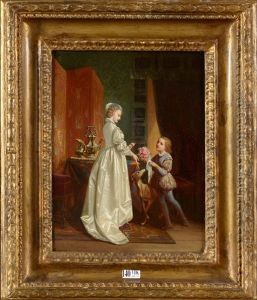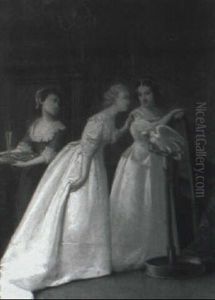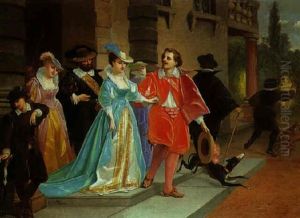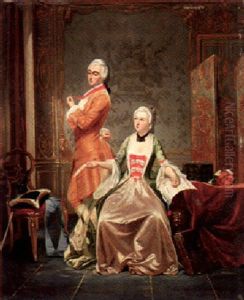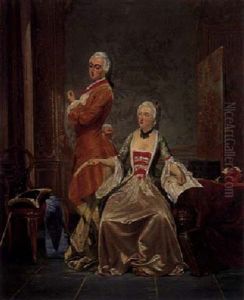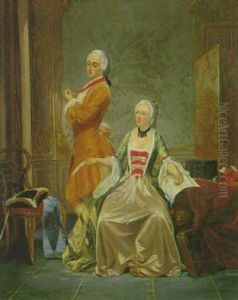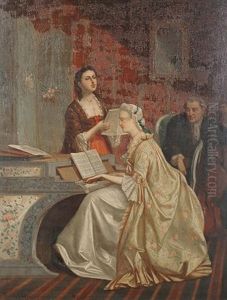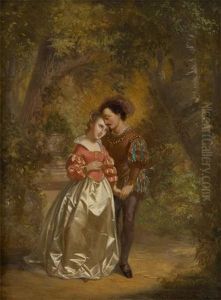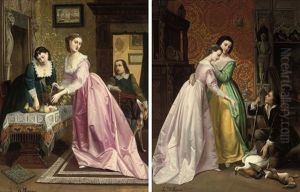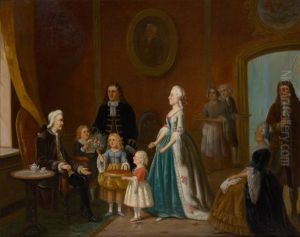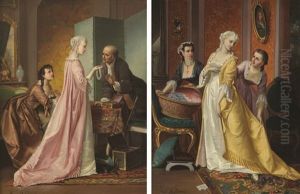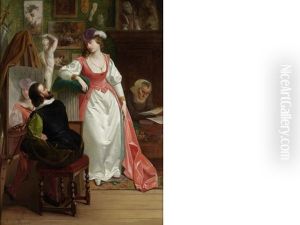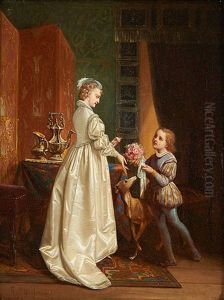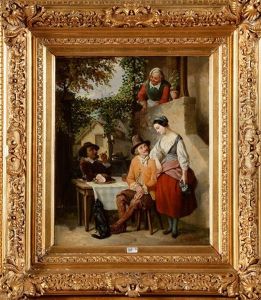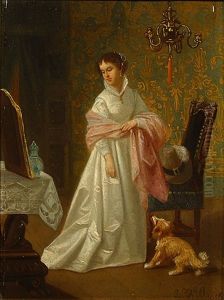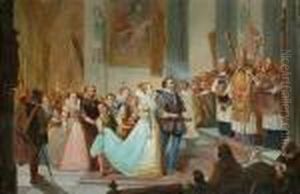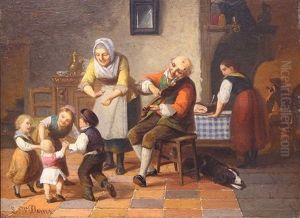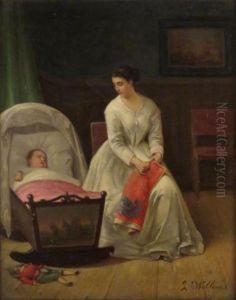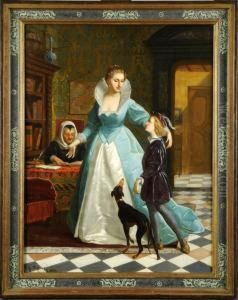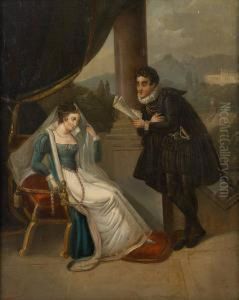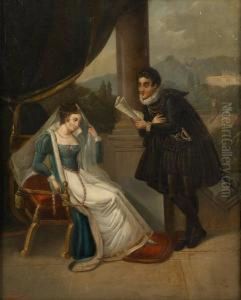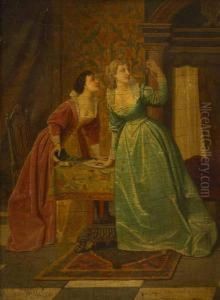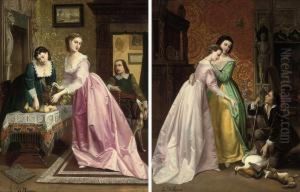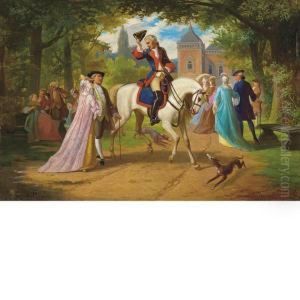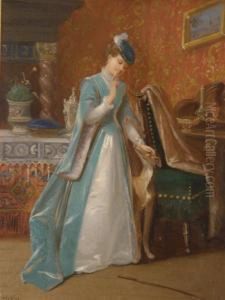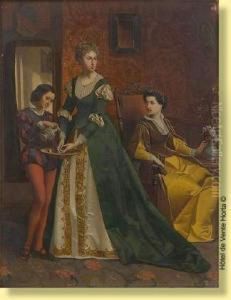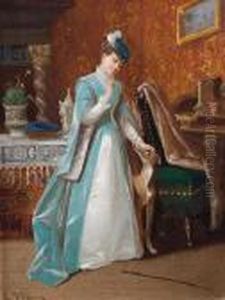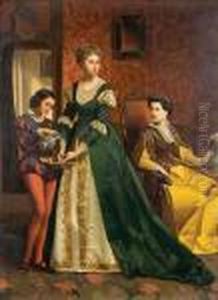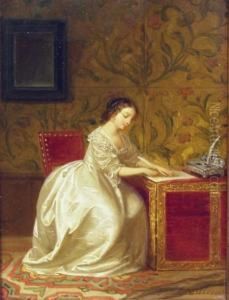Louis Willems Paintings
Louis Willems was a significant figure in the field of medicine rather than a traditional artist. Born in 1822 in Belgium, Willems dedicated his life to the study and advancement of medical science, particularly in the area of veterinary medicine. He is best known for his pioneering work on the prevention of contagious diseases in animals, especially his research and development of a vaccine against pleuropneumonia in cattle.
Willems' approach was innovative for his time; he focused on the idea of inducing immunity in healthy animals by inoculating them with weakened forms of the disease. This method laid the groundwork for future research in immunology and vaccine development, not only in veterinary medicine but also in human medicine. His work significantly reduced the mortality rates from pleuropneumonia among cattle, which had a profound impact on the agricultural industry in Europe and beyond.
Throughout his career, Willems faced skepticism and resistance from some quarters of the scientific community. However, his persistence and the eventual success of his vaccine earned him recognition and accolades, including honors from the Belgian government and international acclaim. Despite the challenges, he continued his research and advocacy for preventive measures against animal diseases, contributing to the foundation of modern veterinary science.
Louis Willems passed away in 1907, leaving behind a legacy of innovation and dedication to the health and welfare of animals. His work not only saved countless lives but also helped to establish principles that continue to guide the field of immunology and disease prevention today.
